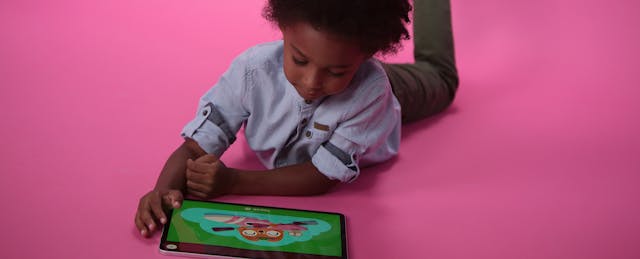As children around the world were forced to stay home from school because of the COVID-19 pandemic, early-learning app Lingokids added a million families a month to its user base.
It’s the sort of traction that gets investors’ attention. The Madrid-based company has announced $10 million in Series B funding from puzzle and game producer, Ravensburger. The move follows an explosion of growth in the education tech sector.
"Over these past few months, there has been a lot of inbound interest from investors, across the board,” said Cristobal Viedma, Lingokids CEO and founder. “Everybody’s looking into education technology and the big themes that are being affected by the COVID situation.”
The Ravensburger investment takes total Lingokids’ total funding to $23 million. Fundraising discussions were underway before the pandemic hit Europe and the U.S., but the disruption to daily life only drove a surge usage of the platform. The company witnessed a 50 percent increase in engagement rates from users during 2020 and is on course to add 10 million families to the platform by the year’s end, Viedma said. That would take it to 20 million active users across 190 countries.
“A lot of parents have been forced to stay at home with their kids and they’ve been reshaping their thinking around what it means to use digital technologies in education,” said Viedma.
Lingokids was founded in 2013 when Viedma created an app to help his niece learn English. The platform focuses on kids aged 2 to 8 and has grown rapidly.
Previous investment has come from HV Holtzbrinck Ventures, JME Ventures, All Iron Ventures, 500 Startups, Athos, Sabadell Ventures, BigSur, Reach Capital, K-Fund’s founding partners, SHO-zemi, Incuvest, and business angels like Gwynne Shotwell, President and COO of SpaceX.
After initially focusing on English language learning, and attempts to explore other languages, the platform is now providing a more project-based learning curriculum. “We are kind of evolving the company from an English learning acquisition tool to a more fully fledged educational tool, in English,” Viedma said.
To this end Lingokids promotes ‘self-learning,’ enabling children to interact with the platform independently but also allowing parents to feel part of the process, alleviating fears about screen time and technology.
“We’ve been creating content for the kids, but also content for parents in the shape of play-together activities,” Viedma said. “When the parents want to engage with the children and create a social moment, it doesn’t have to be always the child alone. They can actually enjoy these together.”
The investment from Ravensburger will allow Lingokids to explore other new avenues. An IP licensing agreement will see the creation of physical games and puzzles, and potentially books. Increased parent-focused content will help build community and learning opportunities that reflect important current events, such as the Black Lives Matter movement.
The company is also exploring new tiers of membership that will allow the platform to offer different priced subscription points that could make it more affordable for some families. Lingokids offers a limited free basic plan and offers unlimited access for $14.99 a month.
For Ravensburger, the investment was about exploring digital opportunities. The company was founded in Germany in 1883 and has made a number of investments over the years. It acquired BRIO, the Swedish wooden train company, in 2015, and had been seeking digital investment opportunities when it first contacted Lingokids back in 2017.
“Playful learning happens in many forms and places and increasingly so in high-quality digital formats,” said Thomas Bleyer, group director of corporate development at Ravensburger.
The pandemic has underlined the importance of the Lingokids product, Bleyer said, but was not a determining factor in the investment decision.
“As in many areas, COVID-19 has only accelerated the need for such a product offering and increased the value that it provides for families,” Bleyer said. “Lingokids is doing an outstanding job in delivering this value but it would do so with or without the context of COVID, based on its highly-talented management team, high-quality content development and superb marketing skills.”
This sentiment is shared by Lingokids users.
Sarah Kelley is the mother of boys, aged five and two, in Vermont. With schools closed, Lingokids has played a crucial role as her family has adjusted to life during the pandemic.
“Lingokids has been a constant tool assisting us during transitions from in-person learning to virtual learning and back again,” Kelley said.
The range of content on the platform has helped her sons during “this strange and uncertain time,” Kelley added, and the family plan to use the app in the future.
Lingokids currently has annual bookings of $30 million. The goal, Viedma said, is to have 100 million families using the platform by the end of 2021. If it hits this target, that would bump annual bookings to $100 million.
During the pandemic, Lingokids donated over 30,000 app licenses to schools and non-governmental organizations. It previously worked with Save the Children in the U.S., UNICEF, UNHCR and the Red Cross, Shakira’s Pies Descalzos organization in Colombia and the Queen Rania Foundation in Jordan, among others.
Lingokids currently employs 80 people and Viedma expects this to grow to 100 by the year’s end.


